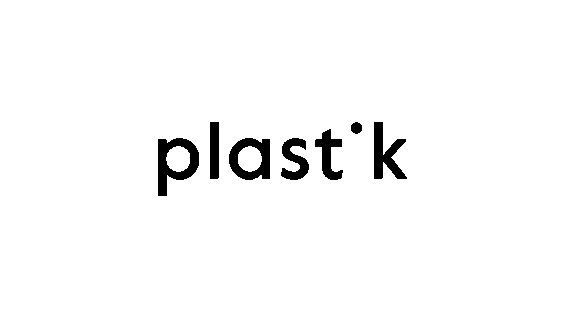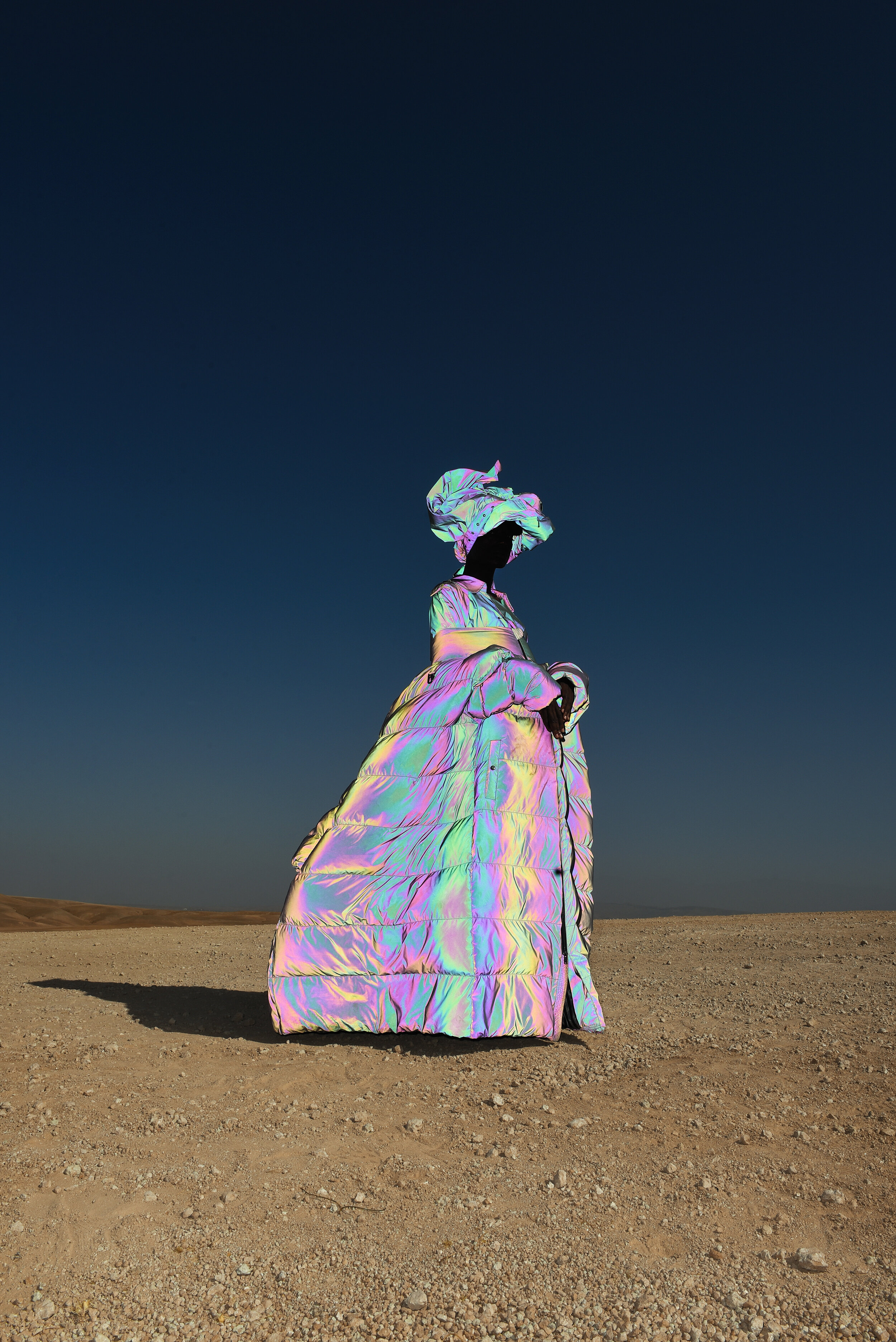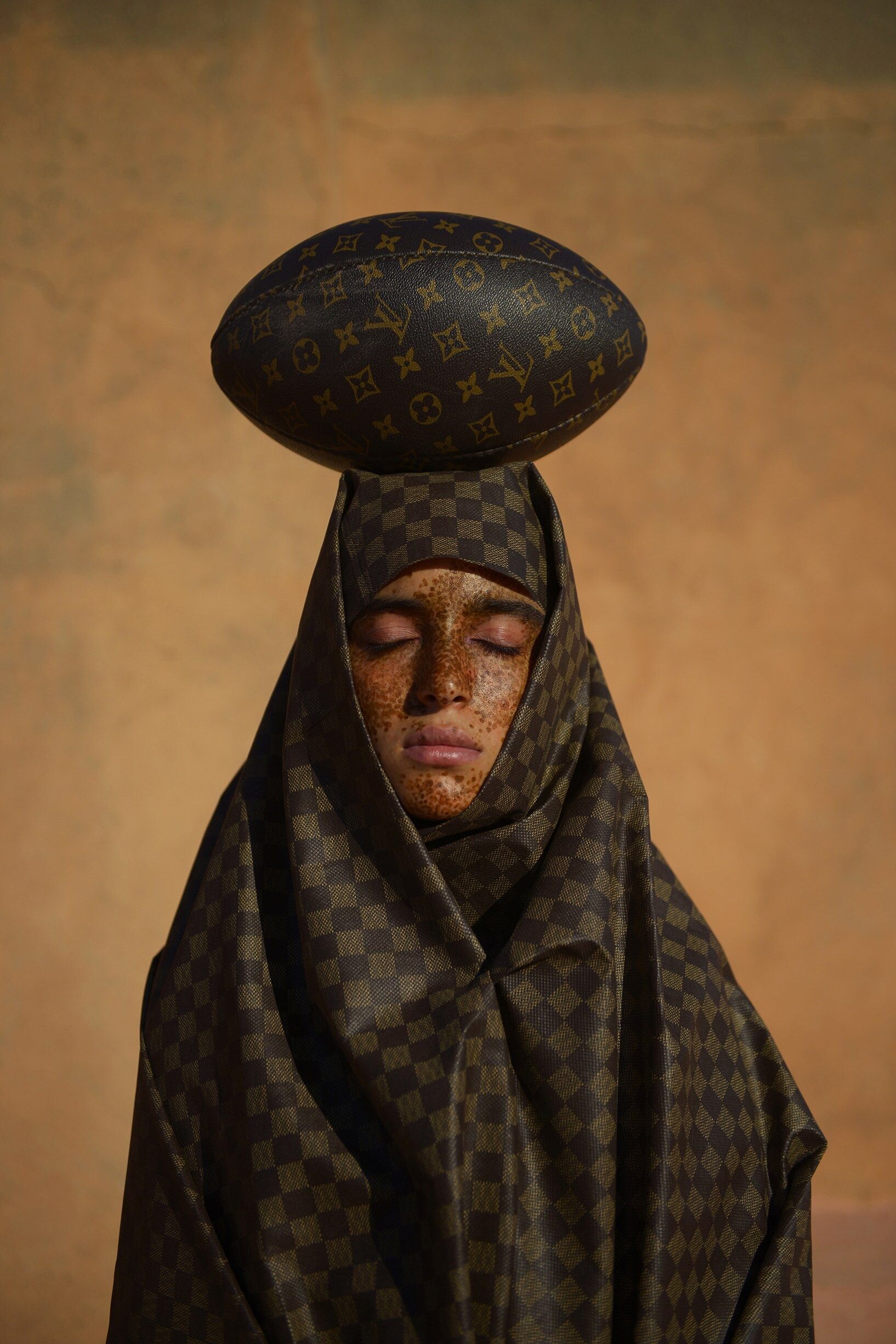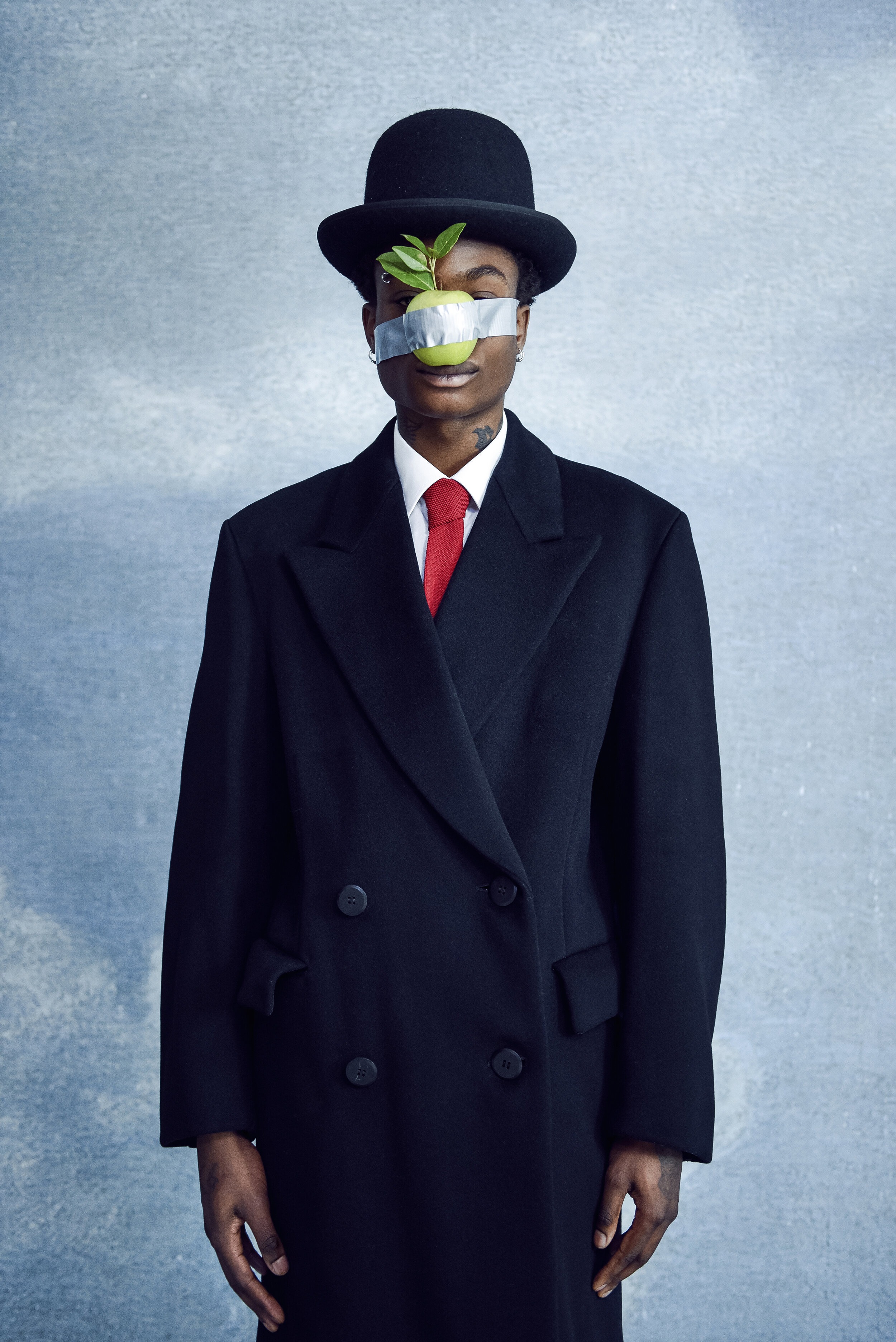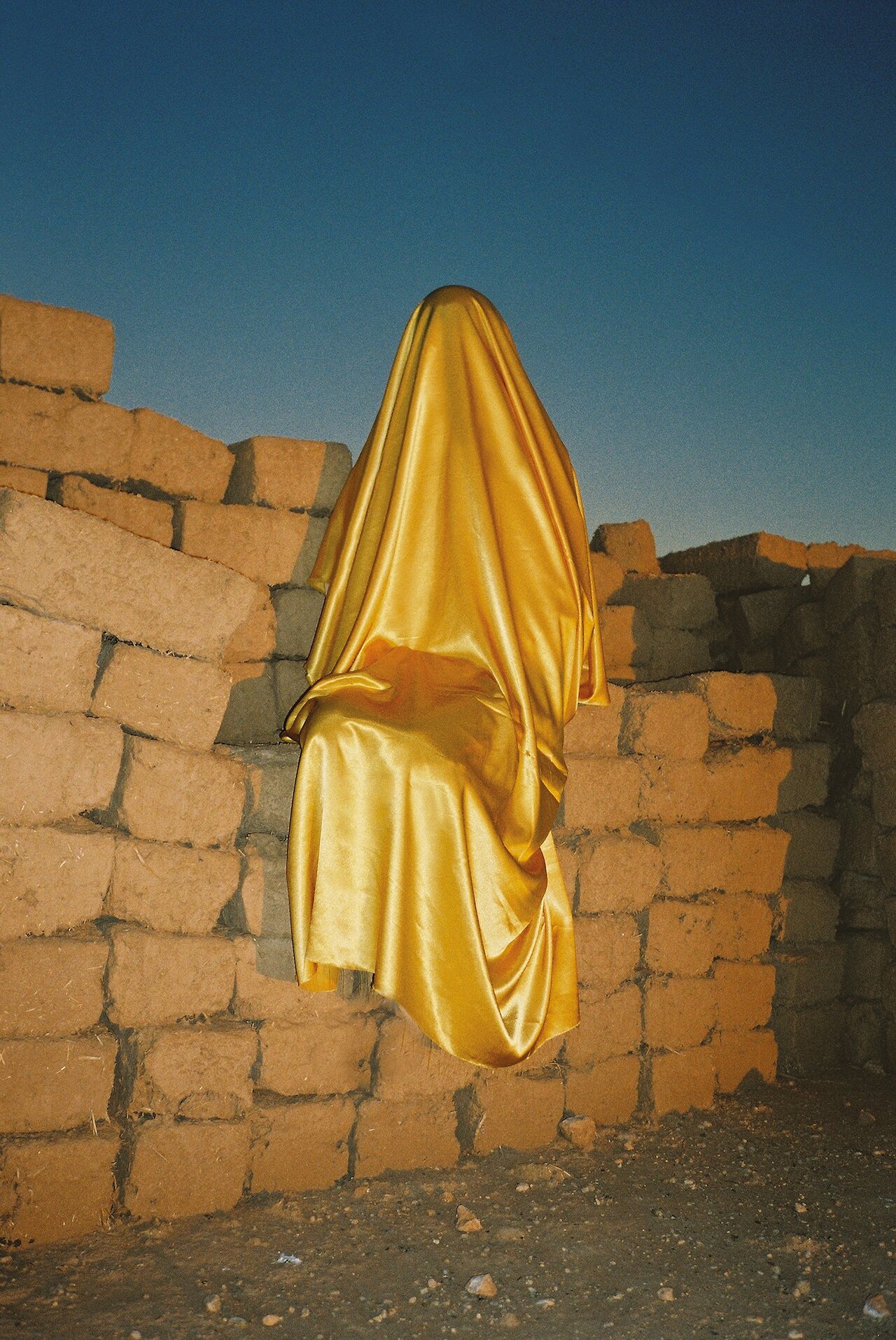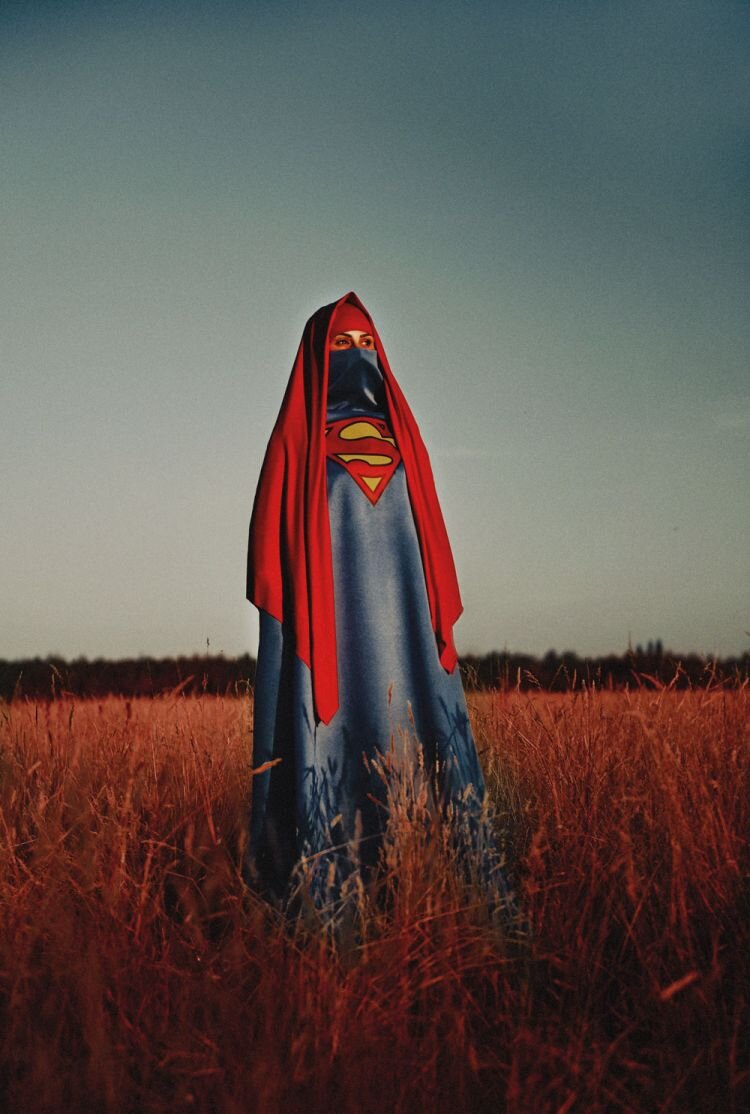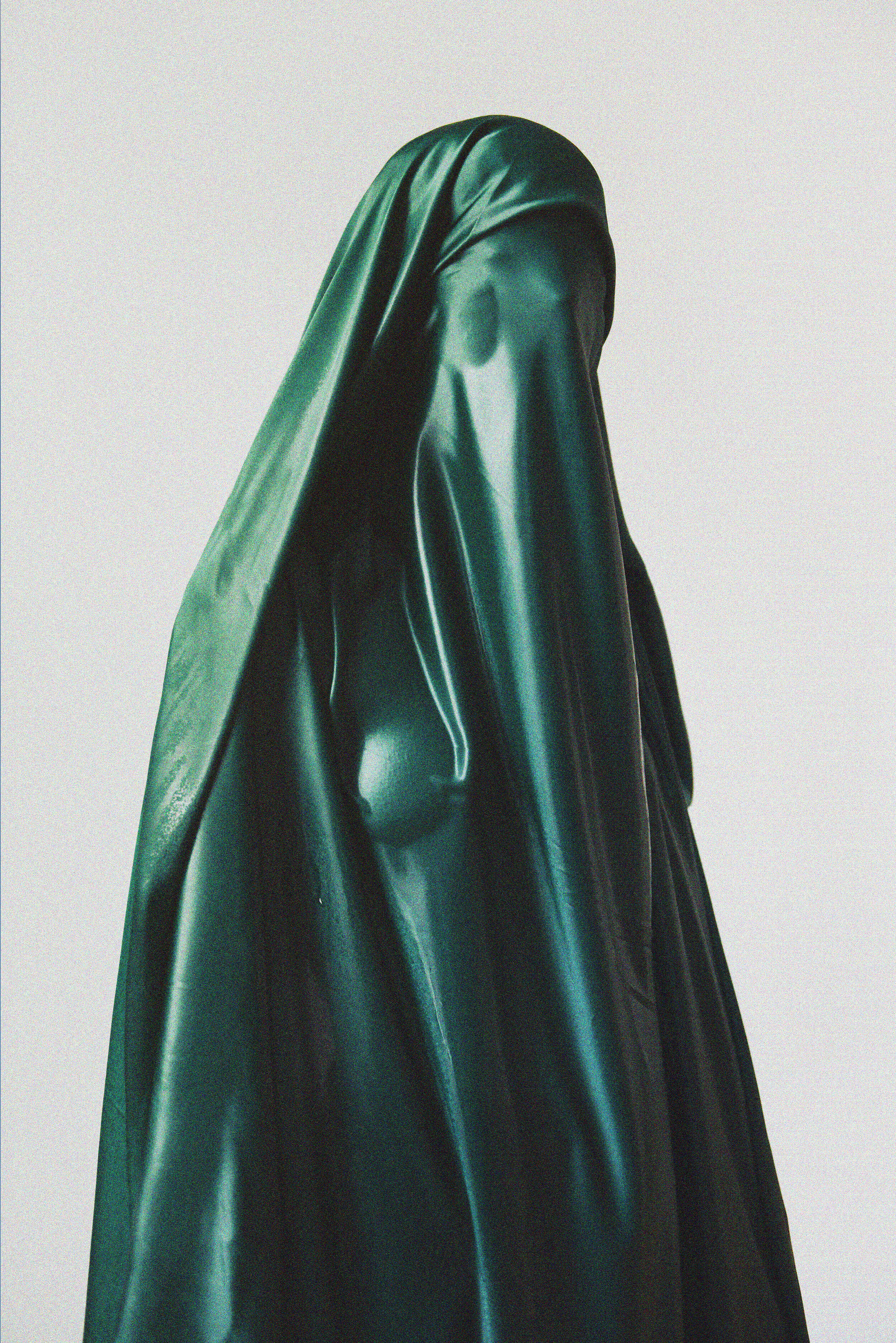MOUS LAMRABAT - A CROSS CULTURAL MIND MAKING SENSE OF THE WORLD
MOUS LAMRABAT - A CROSS CULTURAL MIND MAKING SENSE OF THE WORLD
as the world is going through a major transitional shift, it is becoming apparently clear that our current binary belief system - normal vs odd, black vs white, old vs new, west vs orient, rich vs poor, left vs right…- is becoming obsolete. mous lamrabat’s body of work strikes with renewed relevance as it consistently blends the lines between cultures, the present, the future and the past, and defies all things “normal”. it is a reflection of a cross-cultural mind trying to make sense of the world. a thought-provoking glimpse into a future where elevated art and proper representation could co-exist without compromise.
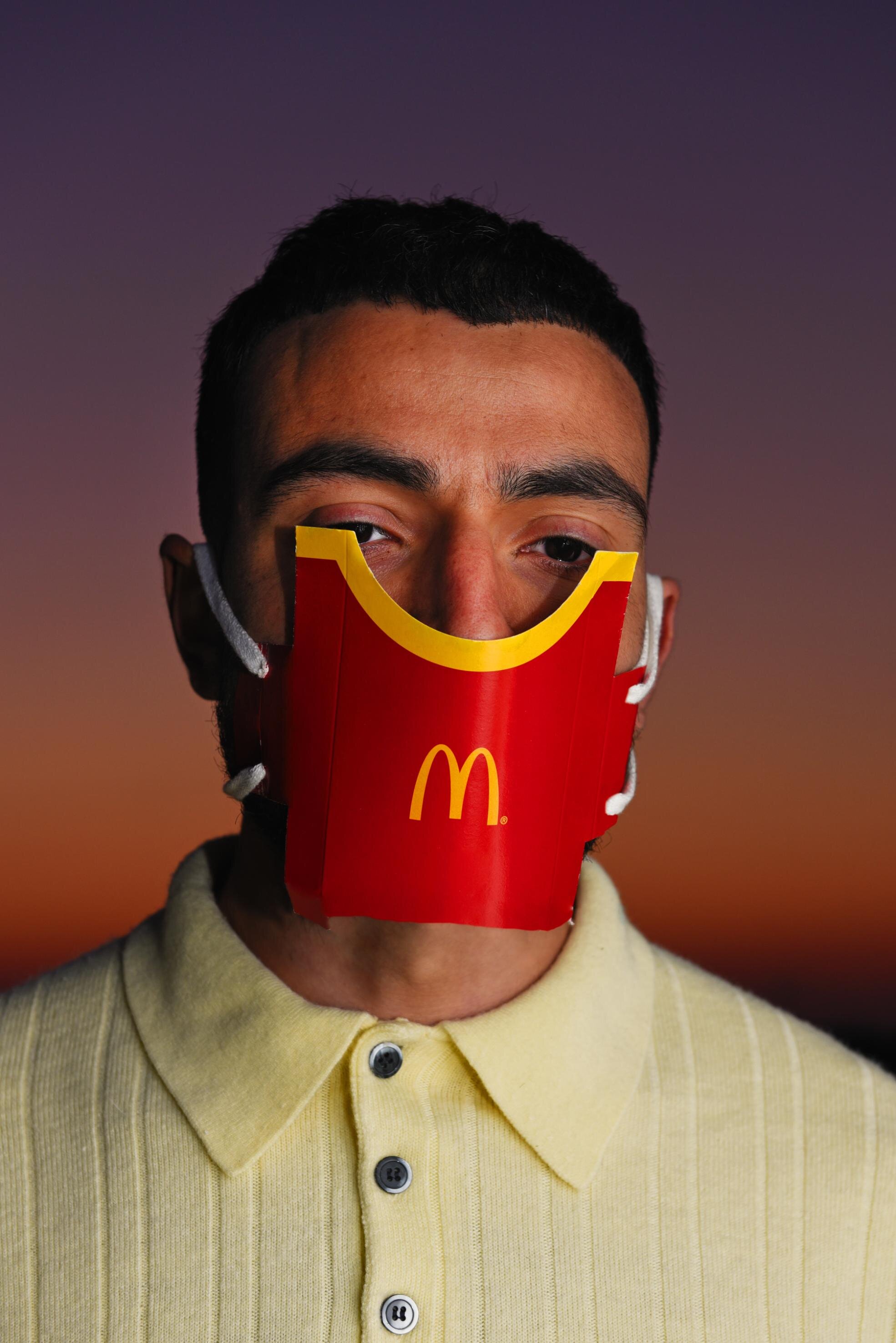
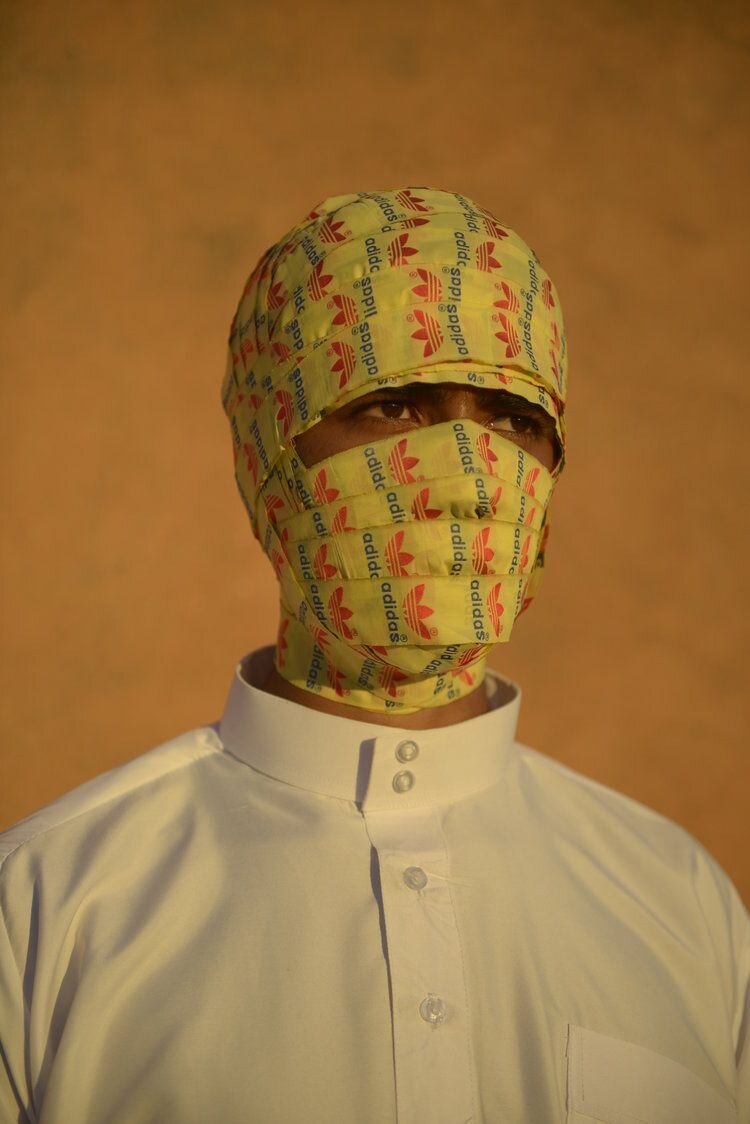
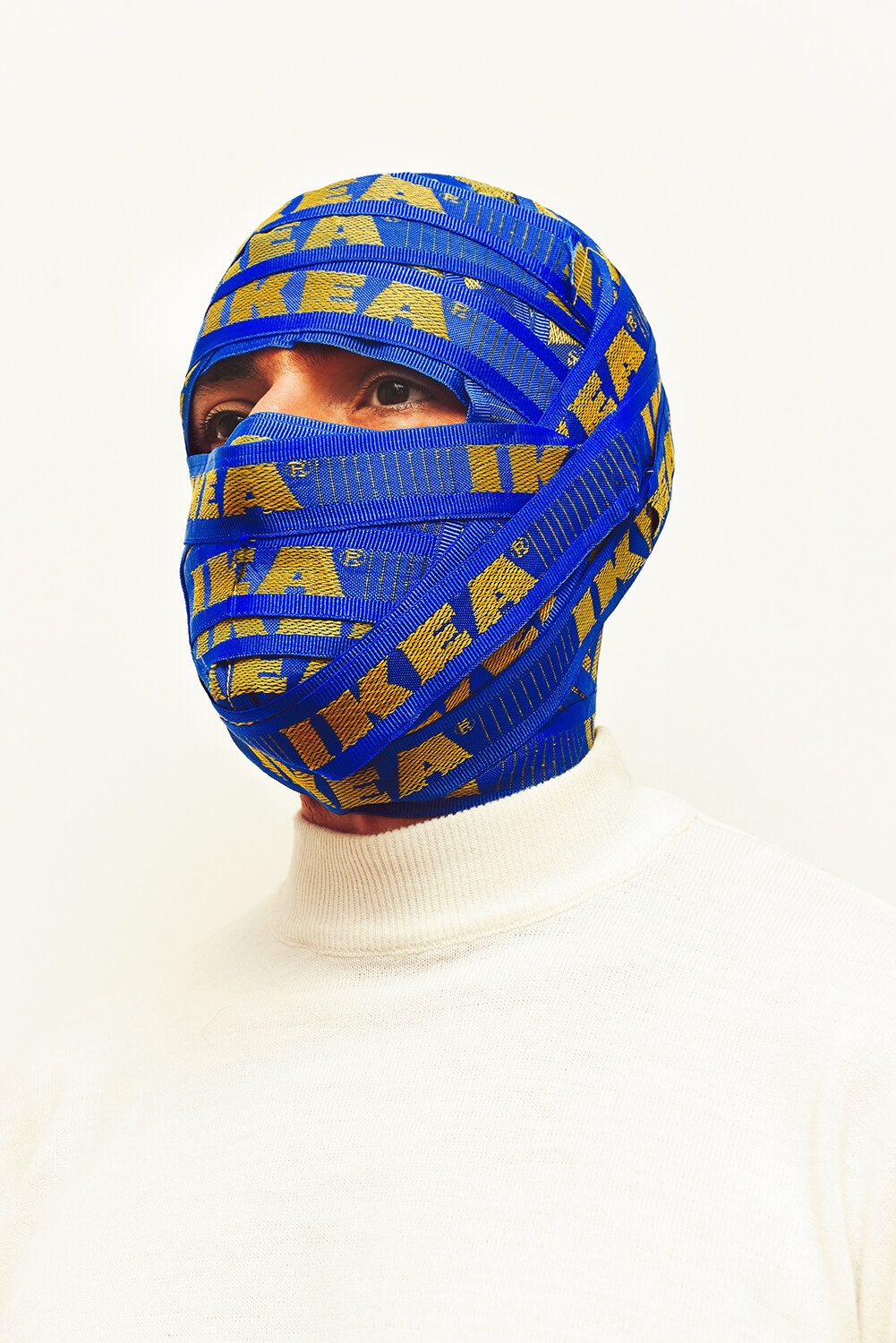
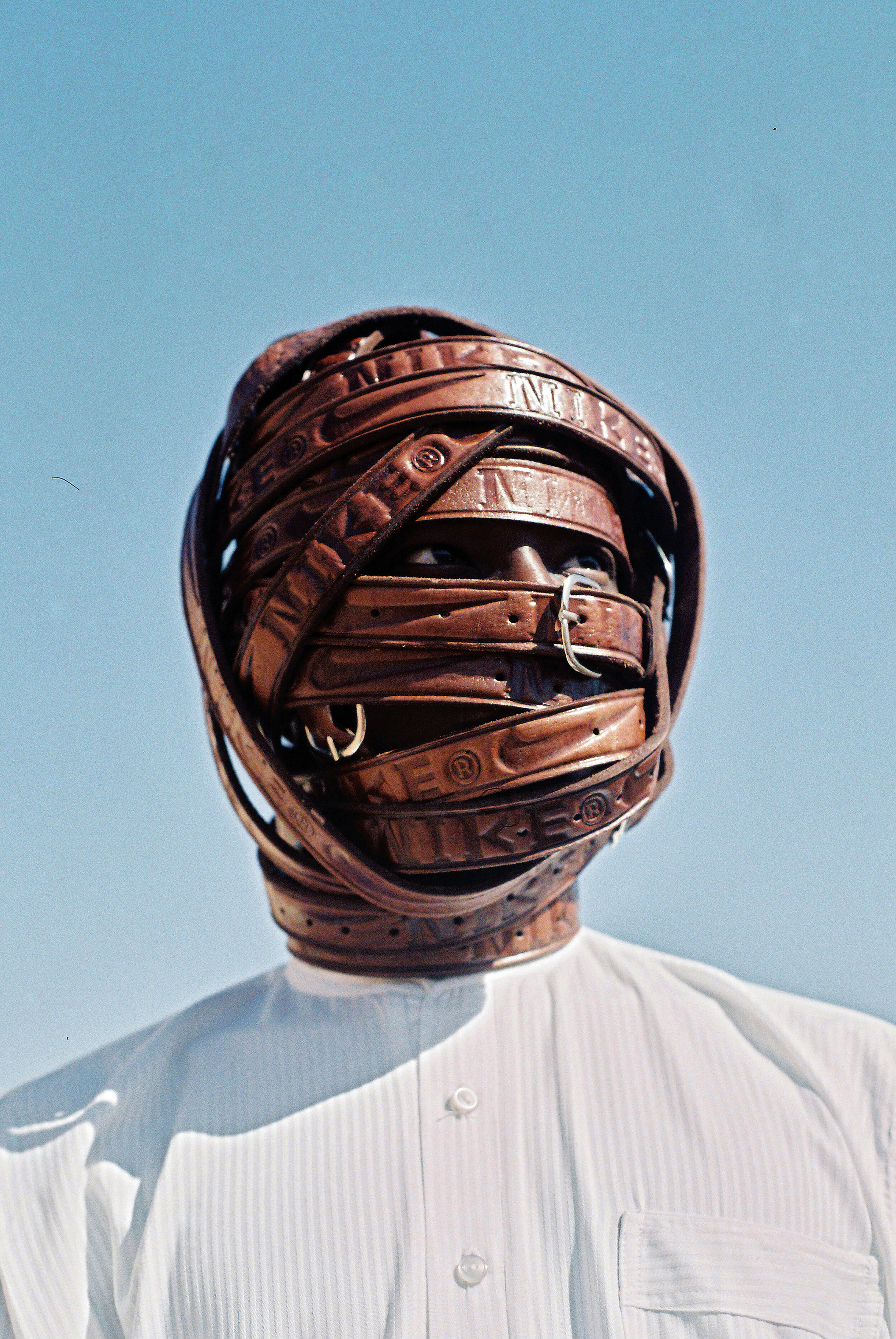
you are a moroccan-born and belgian raised photographer. how has your background shaped your perspective as a photographer?
as a child of first generation immigrants, there is always a point in your life where you feel like you don’t fit in anywhere; not in the country you were born in nor in the country you were raised in. i felt like i was too moroccan to fit in as a belgian and too european to fit in as a moroccan, and this is something that almost every immigrant has to deal with. wherever you want to live on this planet, you will always feel like an outsider. as a result, we do our very best to be accepted and to be “normal”, consciously or subconsciously. luckily, at some point, i didn’t want to do that anymore. i started questioning, and still do till this day, the concept of “normal” and all the standards and rules that society imposed on us. since then, everything changed for me: the way i look at things, the way i act, the way i work, the way i think creatively… my work is a big basket of things that interest me and are meaningful to me on a deeper level. since i grew up in europe and lived day in and day out in a super-traditional house hold, playing basketball, listening to hip-hop, watching cartoons… these are the things that made me who i am and this is the person you see within my work. morocco is an important and influential place for me as well because when i needed to think a lot about what i actually wanted to do or be, i spent 4 months in morocco and everything came together. i realized there is not a “right” way to do things. you need to know what the right way is for you!
your work consistently blends elements of the “west” and the “orient”, the traditional and the new, the cultural and the material. why?
i was always inspired by sci-fi movies. they use a lot of elements to make their world look futuristic and they always mix it up with present-day objects. everywhere in the world we have trends that come and go, but traditional items are carved in there and remain the base of the culture. they always drew my attention, and i'm obsessed with them. as a result, i always try to erase the original purpose of an item and try to repurpose it. i try to be a time traveler and blend the future and the past because you always get an interesting result.
i also like to connect different parts of the world, namely the “west” and the “orient” because i’m both. as a kid, i loved wearing djellabas and rocking them with my jordan sneakers. it felt “cool” at that time because that’s who i was: a mixture of identities. is it really surprising that your “idea-basket” gets larger when you live in different cultures or you live in multiple places in the world?
if you could eliminate one aspect of western culture which one would it be and why?
this is a dangerous question, but i’ll try to be as honest as possible. i traveled many times and to many places around the world and the thing that bothers me most is when i see europeans in foreign countries looking at the locals’ way of living as though it’s not normal. everybody on this planet has their own “normal” and that’s what’s most interesting about our planet. so, if i can eliminate something it would be western people acting like their way is the best way.
if you could eliminate one aspect of oriental culture, which would it be and why?
it's sad to say, but there is a lot of racism within the oriental culture. i can’t say what the source of this racism is, but it's painful to see that there is no unity within this big region. we could be one of the strongest and richest parts of the world.
in your work, you often portray global south citizens covered in logos of american corporations. how come?
if you look at the fashion industry you see that brands are putting their logo on their clothing, more often and bigger than ever before. it’s a thing and we love wearing them. we seem obsessed with the fashion-industry, it became a new religion. everybody wants to be connected with brands, everybody wants to be an influencer, a blogger… the cooler the brand that you're working with, the cooler you are. i’m not saying it's a good or bad thing, but it's today's reality. if you see a person wearing a full gucci patterned outfit pass by, you immediately judge and it steals your attention in a fraction of a second. this is why i love using logos. i first try to grab people’s attention and then get my messages across. i’m not saying it’s the right way to do it, but for me it’s a good way to share my thoughts with the world.
as a child of first generation immigrants, there is always a point in your life where you feel like you don’t fit in anywhere; not in the country you were born in nor in the country you were raised in.
Iin your opinion, is westernization a positive or a negative thing?
i thought about it a lot and i must say that i’m not a fan. who are “we” to say that our way is the best way and how the whole world should function? i’m more interested in getting to know different ways/systems of living instead of a single one. i don’t believe we were put on this planet to work hard all our life in order to pay off debts. i would love to visit another planet one day to see their way of life.
as an artist from a multicultural background, what’s your take on cultural appropriation and where do you draw the line?
i do believe in the concept of cultural appropriation, but it also depends on why you are doing it. if it's for your own benefit, it’s a definite no. however, if you are interested in different cultures, you visit these places, and you create something with the locals without any commercial intent... then it’s genuine interest rather than cultural appropriation. personally, i draw the line at the commercial factor, but that's just me.
“i see europeans in foreign countries looking at the locals’ way of living as though it’s “not normal”.
everybody on this planet has their own “normal” and that’s what’s most interesting about our planet. if i can eliminate something it would be western people acting like their way is the best way.”
your subjects’ eyes, and sometimes faces, are often fully covered by what seems to be your twist on traditional garments. why?
it started out as something that had nothing to do with traditional garments. it was more about creating something that is beautiful without a face. the face is often too much of a distraction. it is proven that the first thing you look at in an image is always the eyes and the face. i wanted to break that. i wanted to decide and control the way people look at my images. a lot of people immediately saw it as a symbol for traditional garments, which i love. i was always captivated with women in niqab, and how mysterious they looked.
what does it take for a person to be able to immigrate to mousganistan. why? and also, where is it?
pffff, man. mousganistan is a utopia, it’s a place in my head and sometimes it's my escape from the world. i have been going there a lot lately. there are so many things going wrong in the world at this moment. some people can take it and deal with it, but i can’t. it literally depresses me. when i escape to this place that i have created in my head, it feels like home and i feel untouchable. it’s a space where i can make sense of everything and search for solutions. it’s not possible to change the world on your own, but i do what i can by sharing my messages. the most important one remains: “life shouldn’t be hard”. i feel we need to go back to the purest forms of humanity and see how “simple” it all can be… and that’s how you get into mousganistan.
Interviewed by Ralph Arida
